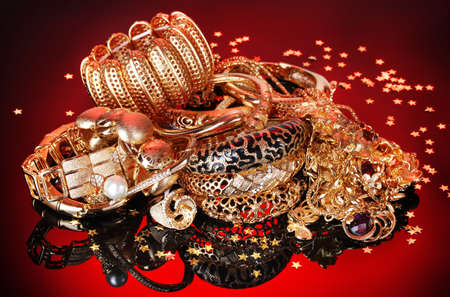Importance of Gold in Indian Families
In India, gold holds a place of immense importance within family life and traditions. It is not merely a precious metal but a symbol of prosperity, stability, and cultural heritage. For generations, Indian households have invested in gold jewellery and other investment metals as a way to secure their familys future. Especially during weddings, gold is considered auspicious and is an integral part of gifts and dowry, reflecting both social status and family values. Beyond its ornamental beauty, gold acts as a financial cushion, providing security during times of need or emergency. Whether purchased from a trusted local jeweller or a well-known branded store, the decision often revolves around ensuring maximum resale value and safeguarding the familys economic well-being for the long term.
2. Understanding Resale Value: Local Jeweller vs Branded Store
When it comes to selling gold jewellery or investment metals in India, understanding how resale value is determined is crucial for families seeking financial security and wise asset management. The resale value depends on multiple factors, and these can differ significantly between local jewellers and branded stores, both of which are popular options across Indian cities and towns.
Key Factors Influencing Resale Value
Resale value is not only about the current market rate of gold or metal but also includes other important aspects like purity verification, making charges, brand reputation, and buyback policies. Here’s a quick comparison:
| Factors | Local Jeweller | Branded Store |
|---|---|---|
| Purity Verification | Often based on trust and local reputation; may use traditional methods | Generally uses certified testing (BIS Hallmarking); provides proper documentation |
| Making Charges Deducted | May deduct lower making charges, sometimes negotiable | Usually deducts higher and fixed making charges; less room for negotiation |
| Buyback Policy | Flexible, informal agreements; may offer better value for loyal customers | Formal, transparent policies; fixed percentage deductions applicable |
| Payout Speed & Method | Immediate cash or cheque payments common | May take longer due to paperwork; often offers store credit or bank transfer |
Cultural Context in India
For many Indian families, especially in smaller towns or joint family setups, local jewellers are trusted community partners who understand their long-term needs and provide personalized service. However, urban families and younger generations increasingly prefer branded stores for transparency and standardized practices.
Summary: Which Is Better?
The choice between a local jeweller and a branded store should depend on your family’s values—whether you prioritize tradition and relationships or standardized processes and formal documentation. Each option has its own set of advantages when it comes to maximizing the resale value of your gold jewellery or investment metals in India.

3. Pricing Factors: Making Sense of Making Charges & Purity
When it comes to gold jewellery and investment metals in India, understanding the pricing structure is crucial for families looking to make wise financial decisions. The resale value of your gold depends on several key factors—primarily gold purity, hallmark certification, and making charges. These elements play different roles whether you are dealing with a local jeweller or a branded store.
Gold Purity: The Foundation of Value
Gold is measured in karats, with 24K being the purest form. Most jewellery sold in India is either 22K or 18K, as pure gold is too soft for daily wear. Branded stores generally provide clear documentation about the gold’s purity, which gives buyers more confidence during resale. Local jewellers may sometimes offer slightly lower purity at a similar price unless you explicitly ask for details. When selling, branded outlets often check purity using electronic machines, ensuring transparency, while some local shops might still rely on traditional touchstone tests.
Hallmark Certification: Assurance & Trust
A BIS (Bureau of Indian Standards) hallmark is now almost mandatory in India and acts as an official guarantee of gold purity. Branded retailers typically offer only hallmarked jewellery, which simplifies the resale process and usually secures a higher price per gram. At local jewellers, hallmarking may not always be present, especially for older or custom pieces—this can lead to disputes over value when reselling.
Making Charges: The Hidden Cost
Making charges are the labour costs involved in crafting your jewellery piece. Branded stores often charge higher making charges due to their standardised designs and brand value. While these charges do not add to the intrinsic value of gold, they significantly affect how much you originally paid versus what you receive upon resale—since most buyers (both local and branded) only pay for the net gold weight and purity, not the artistry. Local jewellers tend to have negotiable and sometimes lower making charges, but this benefit can be offset if their assessment of gold purity is less stringent.
For families focused on long-term wealth building and prudent investing, it is essential to balance all three factors—opt for high-purity, hallmarked pieces with reasonable making charges from reputable sellers. This approach ensures better resale value regardless of whether you return to a local jeweller or a branded store in India.
4. The Trust Factor: Warranty, Buyback, and Legacy
In India, gold is not only an investment but also a part of family tradition. When families decide where to buy or sell gold jewellery and investment metals, trust plays a crucial role. The reputation of local jewellers and branded stores is often built over generations, influencing the resale value and ease of transaction.
Trust and Transparency in Transactions
Indian families typically prefer establishments with transparent business practices. Branded stores usually offer computerized billing, purity certification (BIS hallmark), and documented buyback policies, providing peace of mind. Local jewellers may rely on long-standing personal relationships and verbal assurances, which work well within close-knit communities but can lack formal documentation.
Comparison Table: Local Jeweller vs Branded Store
| Aspect | Local Jeweller | Branded Store |
|---|---|---|
| Warranty | Mainly verbal, based on relationship | Documented warranty & certificates |
| Buyback Policy | Flexible, sometimes negotiable; may depend on current gold rates & purity check at the time of resale | Clear written policy; often linked to original bill & BIS hallmarking |
| Transparency | Personal trust; less paperwork | Formal process with itemized bills, clear deductions for wastage/charges |
| Generational Reputation | Often decades old; trusted by multiple generations in one locality | Younger legacy but strong brand recognition across India; trusted for consistency |
| Resale Value Impact | May offer slightly better rates for regular customers/family friends; risk of subjective pricing remains | Standardized pricing; lower risk of disputes, but stricter criteria for buyback eligibility |
The Role of Family Legacy in Decision-Making
For many Indian households, the jeweller’s reputation is passed down like an heirloom. Families may remain loyal to a local jeweller because of decades of fair dealings. However, younger buyers are increasingly attracted to branded stores for their professionalism and standardized procedures. Ultimately, factors such as documented buyback guarantees, transparency in transactions, and a jeweller’s generational standing influence the final choice—balancing tradition with security and peace of mind.
5. Liquidation: Ease and Practical Considerations
When it comes to liquidating gold jewellery or investment metal, Indian families often weigh the convenience and practicality of selling at a local jeweller versus a branded store. Both options offer unique advantages and challenges, especially when quick access to funds is required.
Location Accessibility
Local jewellers are usually situated within residential areas or local markets, making them easily accessible even in smaller towns or rural parts of India. This proximity means you can visit them on short notice, without the need for extensive travel. Branded stores, on the other hand, tend to be located in city centres or shopping complexes, which might require more effort and time to reach, particularly for families living in non-metropolitan regions.
Relationship-Based Transactions
A longstanding relationship with your local jeweller can significantly influence the ease of liquidation. Familiarity often leads to smoother negotiations, quicker processing, and sometimes even better offers, as trust has been built over generations. Local jewellers may also provide flexible payment methods or immediate cash—an important consideration for households facing urgent financial needs.
Branded Store Experience
While branded stores maintain standardized procedures and transparent documentation during resale, this can mean longer wait times and stricter requirements for paperwork or original purchase bills. The process is more formal, which some families appreciate for security reasons. However, this formality may not suit those seeking an immediate transaction or lacking detailed purchase records.
Practical Takeaway
If liquidity and quick turnaround are top priorities—such as during family emergencies or unplanned expenses—a trusted local jeweller often provides faster service tailored to personal relationships. Conversely, branded stores offer more regulated processes that appeal to those who prioritize official documentation and uniformity over speed. Ultimately, Indian families should consider their immediate needs, existing relationships, and the location’s convenience when choosing between these two gold resale options.
6. Advice for Indian Families: Choosing the Right Option
When it comes to buying gold jewellery or investment metals, Indian families often view these purchases as not just a symbol of tradition and status, but also as a safe asset for future liquidity. Making a prudent choice between local jewellers and branded stores requires careful consideration of several factors to protect your family’s financial interests.
Evaluate Resale Value with Caution
The resale value of gold jewellery can vary significantly between local jewellers and branded outlets. Branded stores usually offer standardised buy-back policies with transparent documentation, ensuring you get a fair price based on current market rates and purity. Local jewellers may provide higher flexibility in negotiations but can sometimes lack transparency in purity assessment and resale calculations. Always insist on proper receipts, hallmarking, and purity certificates regardless of where you buy.
Prioritise Purity and Certification
For family security, always choose gold that is BIS hallmarked. This ensures authenticity and makes future resale or pledge processes smoother. Branded retailers generally maintain stricter quality controls and transparent billing practices, which is crucial for safeguarding your family’s investments. If you prefer shopping at a local jeweller due to trust or relationships built over generations, ensure they provide genuine certification and clear breakdowns of charges.
Consider Liquidity Needs
Think about how quickly you may need to convert your gold into cash during emergencies—such as medical needs or educational expenses. Branded stores often have a pan-India presence and standardized policies, making it easier for you to resell or exchange gold at multiple locations. Local jewellers might only buy back what they sold, potentially limiting your options if you relocate or require immediate funds.
Plan Purchases for Family Milestones
Gold is traditionally purchased during festivals, weddings, and auspicious occasions in India. Plan your investments by keeping both emotional value and financial security in mind. Opt for classic designs and standard weights, which are more likely to fetch better resale values than trendy or custom pieces.
Transparency Builds Trust
No matter where you purchase from, ask detailed questions about making charges, wastage, exchange policies, and deductions upon resale. Clear communication ensures there are no surprises when the time comes to liquidate your assets.
Final Thoughts
A balanced approach—combining the traditional trust placed in local jewellers with the transparency offered by branded stores—can help Indian families make wise decisions for long-term security. Always prioritise prudence, thorough documentation, and quality assurance to safeguard your family’s wealth for generations to come.


